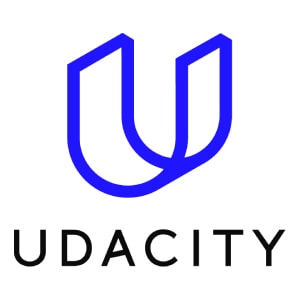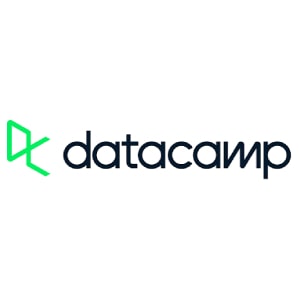
Founded in May 2010, Udemy sprouted as the largest platform for online learning, offering a massive 155,000+ courses of which around 600 are free. You can’t imagine how vast the platform is in terms of categories of courses. For example, you can pick from Health & Fitness, Accounting, Engineering, or even Data Sciences. It is one of the world’s biggest online learning platforms, having helped over 56,000 instructors teach courses to more than 40 million students worldwide since its inception. But, that comes at a cost, and if you ever noticed, the certification is a key concern for edupreneurs. This is why you may feel like doing a quick search for Udemy alternatives.
Students can discover courses that match their interests or search their database for relevant courses from educational entrepreneurs. Udemy’s greatest asset is its staggering number of students and 100 million monthly visitors.
For instructors without a website, e-mail list, or another form of online brand presence, Udemy is the easiest way to connect with hundreds of thousands of interested students. It has several noteworthy features that any platform seeking to compete with it must address in one way or another. Let’s have a look at what Udemy’s competitors have to offer.
Reasons to look for an Udemy alternative
- Some courses on Udemy are very costly
- Due to the lack of quality on certain courses
- The course you are looking for is not available on Udemy
- The website or application feels a bit slow
- There are free alternatives available all over the internet, including YouTube
- As an instructor, you are not getting paid enough
Reasons to Avoid Udemy
Udemy has recently been in the news for settling a class action lawsuit for unfair pricing practices, which makes one wonder: is it really worth it to use the platform? Over the years, controversies and problems have plagued Udemy.
From accusations of profiting from stolen or pirated materials, to bot profiles, these are only a few examples. If you look deeper, you will find several reasons to justify leaving and straight up avoiding Udemy. We have created a list of reasons that can encourage our readers to leave Udemy and look for a suitable alternative.
- While we have already explained how Udemy has been accused of using stolen or pirated content to generate profit, there are also times when courses uploaded on the platform have been stolen by others. But it is ultimately a loss for the course creator and not the platform, which is a valid reason to stay away from it.
- Udemy charges a very high commission on any courses uploaded on the platform. At a superficial level, it might not reflect directly, but costs such as marketing, referrals, subscriptions, etc. add up.
- Furthermore, literally, anyone can create a course on Udemy, meaning there is no test or any other failsafe to check instructors.
- Often, the courses are stretched too long, in order to charge more.
- And lastly, or more importantly, these courses are in no way accredited.
List of the best Udemy alternatives
1. Skillshare
Skillshare is one of the most popular Udemy alternatives. It has a library of over 17,000 courses and more than two million students. In addition, Skillshare offers monthly and yearly subscription plans for individuals and businesses.
One advantage SkillShare has over Udemy is its focus on video classes. Many instructors feel that videos are more effective than text-based courses. On the other hand, some users may find Skillshare’s pricing structure confusing. There are several pricing plans, each with its features. For example, the starter plan is available at $159 annually per user.

What did we like?
- Offers classes in a wide variety of creative fields.
- Short, practical courses.
- Provides project-based learning.
- Free and premium membership options.
- Accessible on mobile and desktop devices.
- Community-centered approach to learning.
2. Udacity
Udacity is a for-profit company founded in 2011 by Sebastian Thrun and Peter Norvig. The platform provides massive open online courses (MOOCs), college-level classes taught by industry experts. One of Udacity’s unique features is its focus on providing job placement assistance to students who complete their courses.
Additionally, the platform prides itself on offering expert instructors with years of practical experience in their fields, which is something that other competitors lack. Udacity is Udemy’s most direct competitor. It offers a similar range of courses, and many of its courses are even taught by the same instructors. Udacity also focuses on job placement help and practical experience for students.

What did we like?
- Technology and data science skills.
- Offers Nanodegree programs developed with industry leaders.
- Project-based curriculum.
- Personalized feedback and mentoring.
- Career services available.
- Some free courses offered.
3. Coursera
Coursera is a massive open online course provider founded by Stanford professors Andrew Ng and Daphne Koller. It offers over 900 courses from more than 140 universities and educational institutions. Like Udacity, Coursera provides job placement aid to students who complete their courses. It also has a large catalog of courses from some of the most prestigious universities in the world.
Additionally, many of its courses are geared towards intermediate and advanced students, making it difficult for beginners to find relevant content. If you’re looking for high-quality, well-rounded courses, Coursera may be the right choice for you. Coursera courses often come from renowned organizations and focus on industry-specific skills that can help students advance their careers.

What did we like?
- Offers courses, specializations, and degrees across a variety of subjects.
- Partnerships with top universities and organizations.
- Self-paced learning with graded assignments.
- Option for earning a certificate or degree.
- Offers financial aid.
- Mobile app for learning on the go.
4. Coggno
Unlike most Udemy alternatives, Coggno lets you develop courses or upload previous material. This makes it more similar to SCORM (Sharable Content Object Reference Model) files than any other competitor. You may also distribute these courses privately or on the Coggno market. According to users on Reddit, users of the LMS (learning management system) only pay for the materials they consume.
This is one of the reasons organizations employ it hesitantly — they must buy all content students use, after all. For course developers seeking to market their products, monthly prices start at $34.95. Coggno also gets a cut of sales depending on the course price, so make sure to go through their pricing plans.

What did we like?
- Online training marketplace featuring thousands of courses.
- Courses developed by industry experts.
- Offers course creation and distribution tools.
- Learning management system (LMS) included.
- Supports various types of multimedia content.
- Compliance tracking and reporting.
5. Curious
Curious is Udemy’s biggest competitor when it comes to online courses. It offers a wide range of topics and has a library of over 13,000 video lessons. Like Udemy, Curious focuses on practical experience for students. However, its courses are typically shorter than Udemy’s and don’t always offer the same level of depth in content.
Moreover, the curious pricing model is similar to Udemy’s, with all courses costing $20 or less. However, they provide students access to course materials for life. In case you’re unaware, Udemy typically has a time limit on how long access lasts. Curious also offers discounts for educators, like its primary competitor.

What did we like?
- Emphasizes lifelong learning.
- Covers a broad range of topics from tech to crafts.
- Offers interactive lessons, courses, and exercises.
- Curiosity Quotient (CQ) point system to track progress.
- Customized learner recommendations based on interests.
- Available on web and mobile devices.
6. Learning.ly
Learning.ly is a learning platform similar to Udemy in terms of video focus. They offer a variety of tools for instructors to organize their films and add exercises and other kinds of interactive content. The platform claims to have a multichannel approach, including organic search, paid advertising, direct marketing, and, most importantly, social media.
Learning.ly is operated by a group of economists who offer educators special discounts. The app’s creators make money in various ways, including “revenue sharing, tips, and referral bonuses.” The company’s Teacher Payment page offers more information.

What did we like?
- Offers professional development courses.
- Created by The Economist Group.
- Courses led by world-leading experts.
- Provides a mix of free and paid courses.
- Certificate of completion for paid courses.
- Variety of topics covered including business, economics, and technology.
7. LinkedIn Learning
LinkedIn Learning (previously Lynda) is Udemy’s main rival regarding corporate training. The platform offers a variety of features Udemy lacks, such as the ability to create playlists and track progress over time. It also integrates with LinkedIn, allowing users to connect their learning experiences with their professional profiles.
Furthermore, LinkedIn Learning offers certifications for users who complete courses. Again, Udemy is deficient in many of these features, though it offers the ability to download videos for offline viewing. If you are wondering how to access all of Lynda.com’s courses and expert instructors, LinkedIn learning is your go-to place.

What did we like?
- Business, creative, and technology courses.
- Personalized recommendations based on LinkedIn profile.
- Interactive, video-based courses.
- Integrated with LinkedIn’s professional networking platform.
- Certificate of completion to add to LinkedIn profile.
- Available on desktop and mobile devices.
8. MasterClass
MasterClass started its journey back in 2015 with a simple idea, helming the ship: The idea that Genius should be accessible to all. With such an ideal, the company grew into one of the leading e-learning platforms in the world. Today, MasterClass has over 150 courses available in 11 broad categories, each mentored by a global expert in their field. Some noticeable names are Gordon Ramsay, James Cameron, Dan Brown, and Simone Biles.
MasterClass doesn’t approach the typical way of conducting a class. All its 150 courses are available on demand and taught in a TED talks format, offering storytelling as a medium to connect the speaker and the audience. Due to this, MasterClass courses aren’t cheap. Users can access three different subscription plans and choose the one they like. All these plans are billed annually and cost $15, $20, and $23 per month respectively.

What did we like?
- High-quality courses taught by industry leaders and celebrities.
- Covers a variety of subjects from cooking to acting.
- High-quality video production.
- Accessible on multiple devices including Apple TV, Amazon Fire TV, and Roku.
- All-access pass for all classes.
- Community forums for learners to interact.
9. edX
edX is a nonprofit MOOC provider founded by Harvard University and the Massachusetts Institute of Technology (MIT) in 2012. It extends an offer of 900+ courses from 130+ universities, including Stanford, Columbia, and Caltech. edX also has a diverse range of subjects, focusing on Business and Science, Technology, Engineering, Mathematics, or STEM for short.
However, unlike Udemy, edX doesn’t have any lectures or videos. Instead, it relies on interactive problem-solving exercises and assessments to teach students. While Udemy offers a more traditional learning experience, edX may be a better choice for those seeking a more hands-on approach.

What did we like?
- University-level courses in a wide range of disciplines.
- Involvement with reputed universities and institutions.
- edX offers verified certificates and micro degrees.
- Self-paced learning.
- Free and paid courses available.
- Mobile app for learning on the go.
10. Datacamp
Datacamp offers a unique spin on Udemy by focusing exclusively on data science and programming courses. It has a library of over 500 video lessons, making it one of the largest online data science course providers. Datacamp also has an extensive range of topics, from R to Python to SQL. Finally, Datacamp offers certification for users who complete courses, something Udemy doesn’t permit.
Datacamp is one of Udemy’s competitors in the data science and programming education space. The platform focuses on interactive problem-solving exercises for students learning about this type of science from their web browsers.

What did we like?
- Data science and analytics education.
- Interactive learning with coding challenges.
- Offers skill and career tracks.
- Courses cover R, Python, SQL, and more.
- Personalized learning recommendations.
- Available on both web and mobile platforms.
11. Pluralsight
Pluralsight is a dedicated e-learning platform founded by Aaron Skonnard in 2004. Given its rich history, when people didn’t even think that e-learning could be a thing, it’s no surprise that Pluralsight has grown so much over time.
Today, the platform boasts of having more than 7000 courses taught by 1400 plus subject experts. As a forward-thinking company, the courses also focus on providing skills for the future for both individuals and businesses. Some popular topics are Cybersecurity, IT and application, and software development.
Pluralsight offers two payment models: For its Standard Library, users can spend $29 per month to unlock over 2500 courses. And for its Expanded Library, one has to cough up $45 a month for more than 7000 courses.

What did we like?
- Technology skills with an emphasis on IT, software development, and cybersecurity.
- Offers paths, which are structured course programs.
- Skill assessments to measure progress.
- Mentoring and interactive courses.
- Course completion certificates.
- Integrated with professional tools like Visual Studio, Adobe, etc.
12. OpenSesame
OpenSesame, like Coggno, is one of the few alternatives to Udemy that allows submitting courses you’ve created. To do so, you can utilize a standards-based (SCORM, AICC) course authoring program such as Articulate Presenter. This is something Udemy does not allow. If you’re a seasoned expert or work for a training company or association, this is the level of sophistication you should start your research at.
You can also add movies, and the firm claims that courses developed in its system can be utilized by any learning management system (LMS). For example, this may be a fantastic alternative if you know organizations want your material but don’t want it on their LMS. Finally, the company gets 40% of any sales you make using its platform.

What did we like?
- Corporate online learning courses.
- Comprehensive catalog of eLearning courses from the world’s top publishers.
- Learning experience platform that integrates with existing LMSs.
- Offers course creation tools.
- Variety of topics from compliance to soft skills training.
- Advanced reporting and tracking.
The Perfect Udemy Alternative? Our Recommendation
Coursera can be a more suitable alternative to Udemy. Firstly, the platform emphasizes courses from universities and educational institutions. And secondly, it also provides a job placement cell, allowing students to benefit. Although it might not be suitable for someone looking for beginner-level stuff, it is more than enough to handle intermediate and advanced knowledge.
Then, there is also MasterClass, a pioneer of the industry that started it all. Although, it is not suitable for what one might expect from traditional education. And lastly, we have Skillshare, a superb alternative to Udemy with over 17,000 courses and 2 million registered students.
Conclusion
The effect of online learning platforms has been discussed in our previous article, advantages and disadvantages of online classes. As mentioned in there, there are a lot of advantages for such tools. Which one you should use is completely up to you. Whether it meets your requirements and budget is the most important deciding factor. We hope you were able to find a good alternative for Udemy. Good luck on your journey.